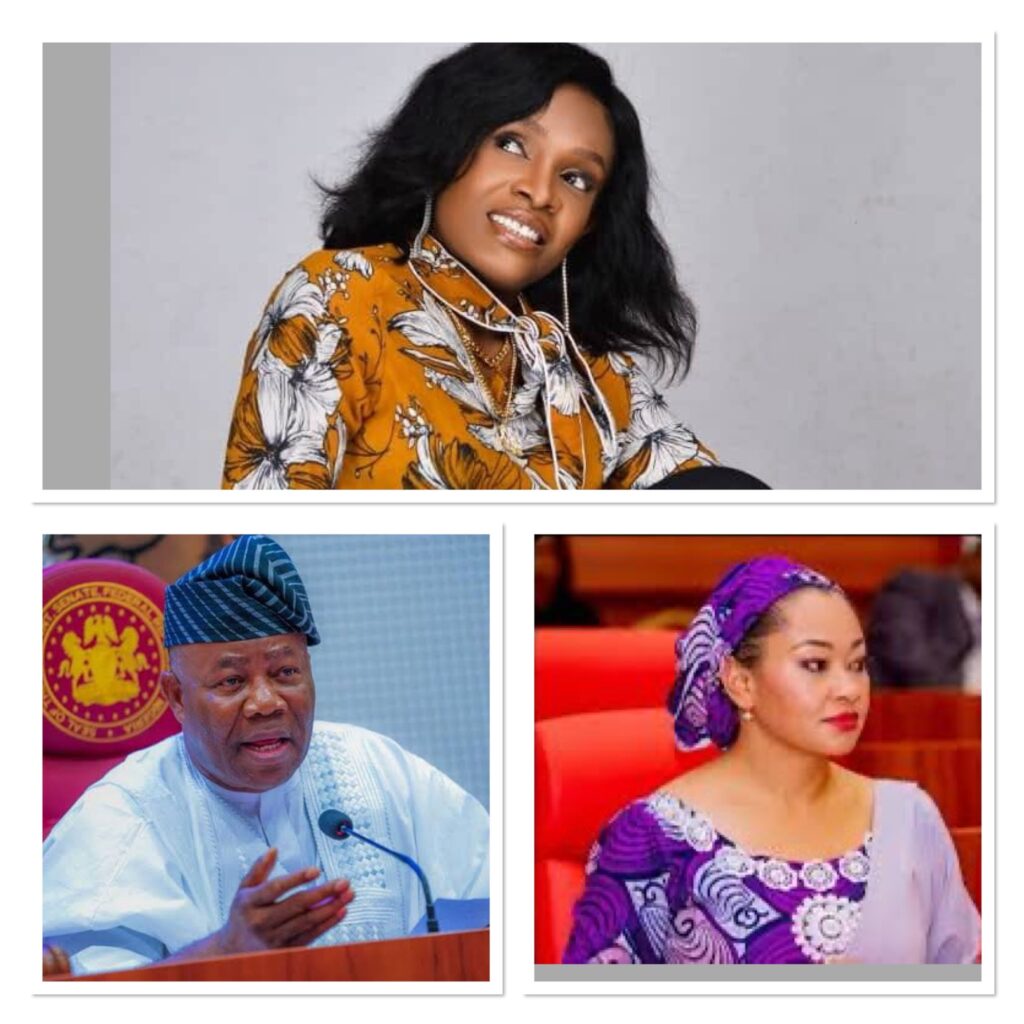By Arinze Nweke
A prominent women’s rights coalition has condemned Senate President Godswill Akpabio for allegedly disrespecting female lawmakers, particularly Senator Natasha Akpoti-Uduaghan, during a recent Senate plenary session.
Speaking on behalf of the group, Ambassador Karen Chinyere James—a respected investigative journalist, activist, and founder of the Women of Substance for Development and Skill Empowerment Initiative—issued a stern warning to Akpabio, urging him to change his attitude toward women in politics.

“If you don’t respect your wife, at least respect Senator Natasha and other women in politics,” Ambassador Karen stated, emphasizing the need for dignity and fairness in governance.
Women Demand Respect in Leadership
The group accused Akpabio of making female politicians feel inferior within the legislative space, describing his alleged actions as a direct affront to gender equality and democracy.
“We, the Women of Substance for Development and Skill Empowerment Initiative, want to pass this as a warning to Senate President Akpabio: Stop making women in politics feel lesser. We are the mothers of Nigeria and the world. If we didn’t give birth to you, you wouldn’t be on that chair today,” the statement read.
The coalition stressed that continued disregard for female lawmakers would not be tolerated and warned of decisive actions should such behavior persist.
Call for Gender Equality and Fair Representation
The women’s group urged Akpabio to lead by example, calling for equal treatment of female politicians in governance. They emphasized that women play a vital role in shaping policies and decisions that impact the nation and should be treated with respect.
The incident has sparked widespread discussions about gender dynamics in Nigeria’s political landscape. Many political analysts argue that the Senate leadership must take proactive steps to ensure that women’s voices are not only heard but also respected in the legislative process.
As reactions continue to pour in, women’s rights advocates insist that addressing systemic discrimination in politics is essential for strengthening Nigeria’s democracy and fostering a more inclusive governance structure.
